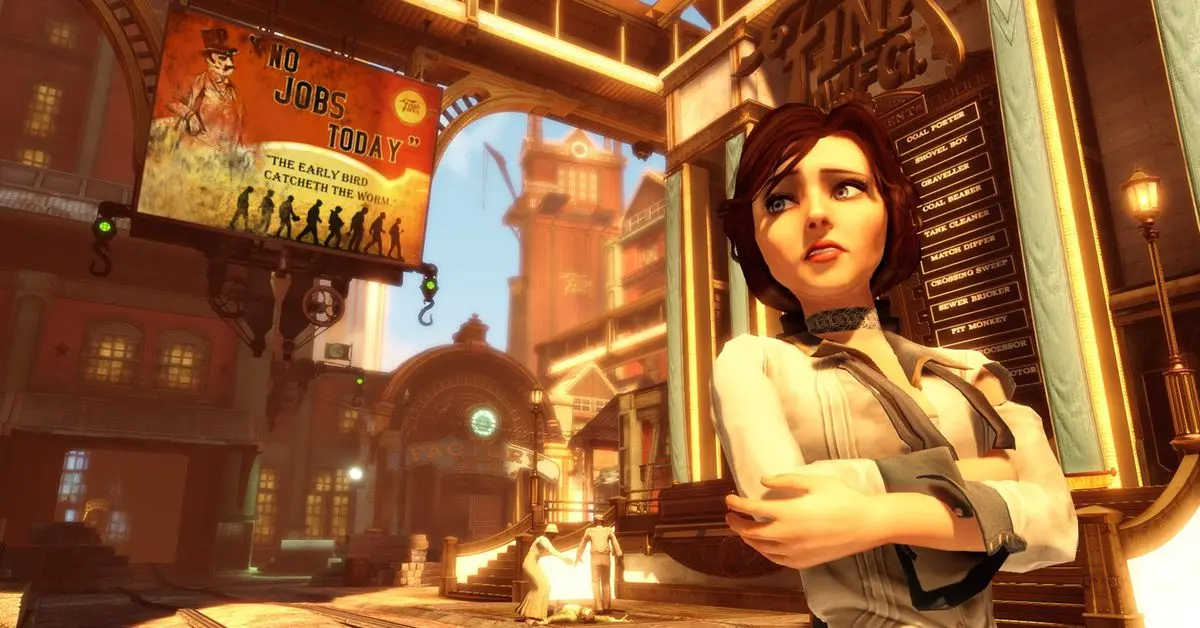- cross-posted to:
- ghazi@lemmy.blahaj.zone
- cross-posted to:
- ghazi@lemmy.blahaj.zone
Thought this was a fun article to read, wanted to share. I think it’s interesting that as societal and political views at large shift in the 2020s, it’s good to go back and reevaluate how narratives are portrayed even as recently as 2015.
FTA:
The crucible of how the game treats its profundity is in the relation between its white Founders faction, which is in power, and its rebellious Vox Populi, who are attempting to liberate the oppressed racial and political classes of Columbia. The player stands between these two forces, doing tasks for each in turn, eventually learning that both are insufficient in creating a good reality. As Chris Franklin highlighted in a recent video, this is a common refrain in projects that Levine has worked on: putting the player in the position of a mediating force between two extremes. The player can feel pulled, and compelled, toward different directions while ultimately being forced down a particular path. Playing as a character who is terminally in the middle of the road allows us to point fingers at any insufficiencies we see in the world around us — as King put it, “gamers like to feel smart,” and seeing the gaps of logic in the various worldviews on display can make us feel like clever social analysts. A player uses magic in their left hand while holding a gun in their right hand in a screenshot from BioShock Infinite.
From the vantage of 2024, it seems that one of the key problems of Infinite’s view from nowhere is infinity itself. No matter your viewpoint, Infinite seems to present you with some ideas that might align with your vision of the world and others that might challenge you. This is probably an admirable goal — art can give us perspectives on the world that we don’t yet understand, and that’s one of the many ways that creative expression can change us.
If there’s an issue here that generates the endless debates about whether Infinite is good, it’s that the game does not provoke us with a particular person’s, group’s, or ideology’s perspective. Instead, it just confronts us with the idea that many different ways of existing in the world are real, and any of them taken to their logical extreme will exclude all others. What produces the “both sides” problems of Infinite is a problem of imagination. Infinite is a universe of plural worlds, and if any of them takes over fully, everything goes bad.
Full disclosure, I was disappointed in the majority of the replies this got when I first posted it, and as a knee-jerk reaction I took it down. But I encourage you to at least read the quotes.



Oh snap, thanks for catching that! I edited the title.
That’s a great point I hadn’t considered, and can’t believe I hadn’t. Rapture felt like its own character to the story in a way that Colombia never really did, but it’s undeniable how well-done the characterization between them was.
And the “twins”. They were fun to run into every time.
Even Comstock, despite barely appearing, was a good villain in the way that he was used to flesh out Booker and the multi-universe plot.
So not really a villain at all, but a clever detail in Bookers detailed personal journey.
Infinite had tons and tons of detail and depth when it came to the characters. The audio logs in the earlier games all fleshed out Rapture.
In Infinite, they flesh out the characters and their lives.